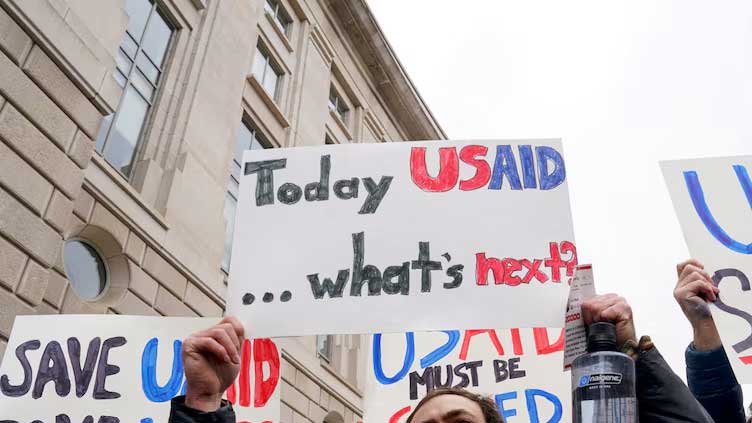Trump's aid freeze sparks mayhem around the world

World
Trump’s aid freeze sparks mayhem around the world
(Reuters) - In Ghana and Kenya, insecticide and mosquito nets sit in warehouses because US officials haven’t approved urgent anti-malaria campaigns.
In Haiti, a group treating HIV patients awaits US permission to dispense medicines that prevent mothers from giving the disease to their children.
In Myanmar, where famine looms and the US is the single largest aid donor, one humanitarian worker described the situation as “mayhem.”
Nearly three weeks into US President Donald Trump's sweeping freeze on foreign aid, life-saving programs across the globe remain shut as humanitarian workers struggle to secure US government waivers meant to keep them open, dozens of aid workers and UN staff told Reuters.
After Trump announced the 90-day freeze on January 20, US Secretary of State Marco Rubio issued waivers for what he called “life-saving humanitarian assistance,” which included “core life-saving medicine, medical services, food, shelter, and subsistence assistance.”
But aid workers and UN officials said the waivers had sparked widespread confusion, along with fears that their US funding would never be restored.
They said they couldn’t restart work without first confirming with their US counterparts whether specific programs qualified for exemption. This was proving nearly impossible, they said, due to a communication breakdown with US officials, some of whom had been fired or barred from talking.
The breakdown appeared partly by design. On January 31, staff at the United States Agency for International Development, once the main delivery mechanism for American largesse, were told not to communicate externally about the waiver and what it may or may not include, according to a previously unreported recording of the meeting reviewed by Reuters.
The US State Department and White House did not respond to requests for comment.
The spiraling consequences of the aid freeze in developing countries underline the real-world harms from Trump's upending of decades-old US initiatives designed to build global alliances by making America the world’s most generous superpower and largest single aid donor.
Aid workers had a list of urgent questions going unanswered. Among them: Which programs could continue? What qualifies as life-saving aid? Food? Shelter? Medicine? And how do they keep people from dying when almost every aid service has been shut at once?
With little guidance from US officials, aid workers said their organizations erred on the side of caution and closed programs rather than incur expenses that the US government might not reimburse, the aid workers said. Some described how US partners – often people they had worked with for years – no longer answered their phones or emails.


